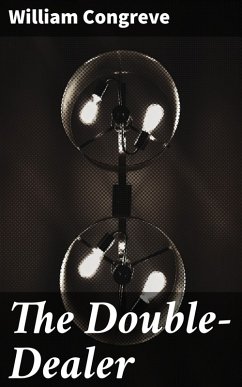In William Congreve's sharp and sophisticated play, *The Double-Dealer*, audiences are immersed in a world of deceit, social hierarchy, and the complexities of romantic intrigue. Written in 1693 during the height of the Restoration period, the play showcases Congreve's masterful command of wit and satire, as he artfully navigates the conventions of comedy while delving into themes of honor, betrayal, and the multifaceted nature of love. The plot intricately weaves together a cast of characters ensnared in a web of duplicity, with a biting dialogue that reflects both the ridiculousness and the pathos of human relationships, making it a notable contribution to the genre of Restoration comedy. William Congreve, a prominent playwright and poet of his time, was known for his keen observations of social mores and the intricacies of romantic entanglements. His experiences in the politically tumultuous late 17th-century England, coupled with his education and literary exposure, shaped his critical view of society, which resonates throughout *The Double-Dealer*. This work exemplifies his unique ability to blend humor with social critique, making him a pivotal figure in the evolution of English comedy. *The Double-Dealer* is highly recommended for readers who appreciate wit and the theatrical exploration of moral ambiguity. Congreve's incisive dialogue and comedic timing continue to captivate audiences, making this play not only a representative piece of its era but also a timeless reflection on the human condition. A must-read for anyone interested in the intricacies of love and deception, this work stands as a testament to Congreve's enduring legacy in literature.
Dieser Download kann aus rechtlichen Gründen nur mit Rechnungsadresse in A, B, BG, CY, CZ, D, DK, EW, E, FIN, F, GR, H, IRL, I, LT, L, LR, M, NL, PL, P, R, S, SLO, SK ausgeliefert werden.









